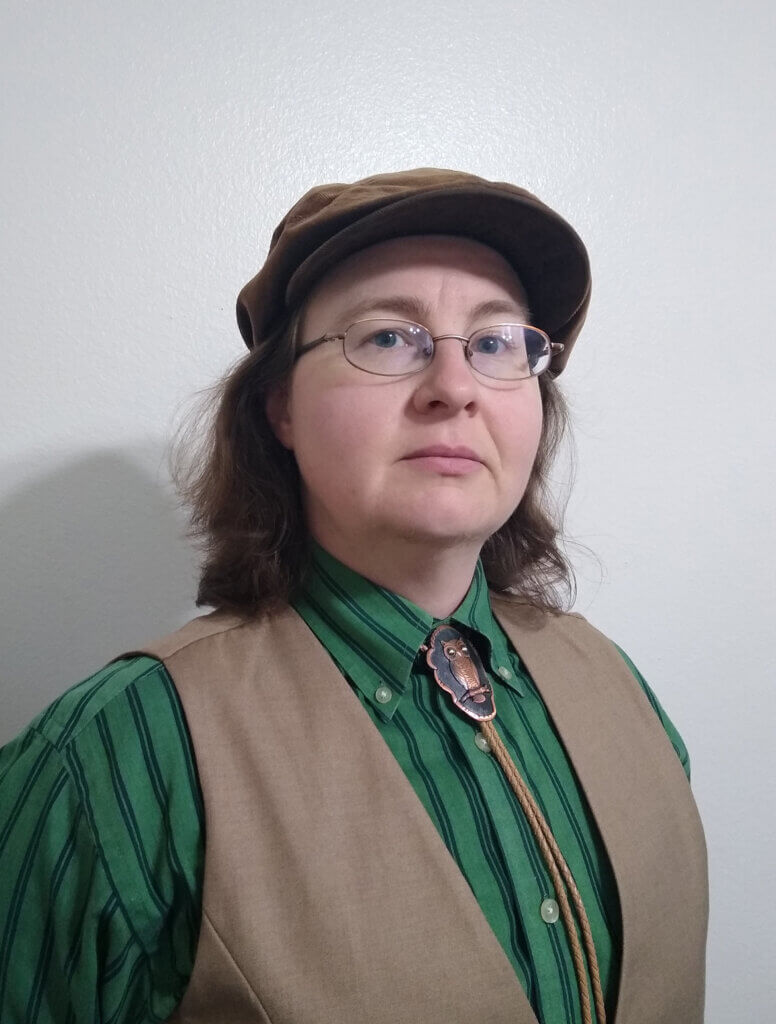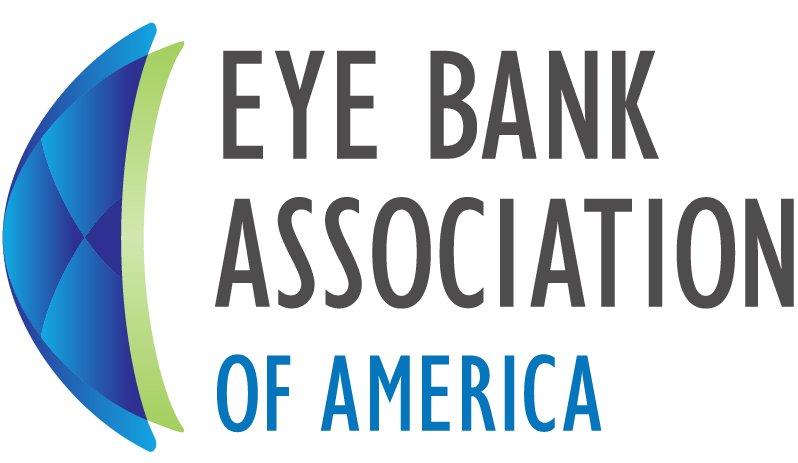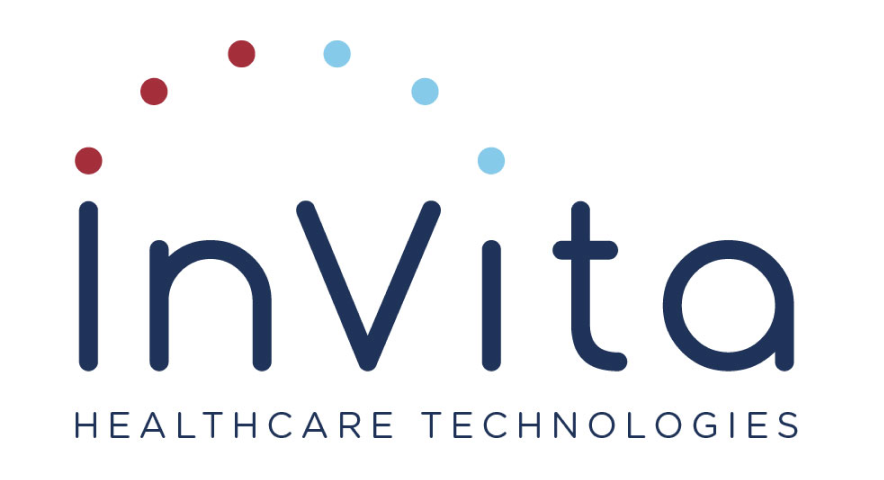Kerry Halladay
Community and Professional Relations Coordinator
Rocky Mountain Lions Eye Bank
Pronouns: Any/Name Preference

June is Pride Month. Invariably, it is also the month where discussions over what “Pride” really is or means crop up. These discussions all too often focus on the semantic. People think about “pride” (noun, an emotion) or the associated “proud” (adjective) or the verb phrases “be proud” or “have pride in.”
This linguistic focus often leads to predictable and, I think, often disingenuous questions. For example, “Where’s my straight-pride parade?” or “Why can’t I be proud of being straight?” Or the more thoughtful, “If being LGBTQ+ is something you can’t control, why be proud of it?” Or the always red flag-raising, “You know pride is the original sin, don’t you?”
But preoccupation with the word usually means people miss the point of Pride. While what Pride is rests heavily on words, it’s more than that: Pride is a place.
People’s Assumptions Shape Places
When I think of Pride or Pride Month, I think of an event; the Pride fair or festival, often just called “Pride” in current vernacular.
Usually, Pride (the event) is two or three days of booths, carnival-esque food, speakers, music, and a parade. But events need physical spaces where people gather to experience them. Those people set the tone and character of physical space that makes it a place.
In all honesty, I don’t enjoy the spaces where Pride events are held. They are always painfully noisy due to the crowds and the over-amped music. Since they happen in June, they are usually hot. Given the stepped-up open violence of domestic terrorist groups like the ironically-named Proud Boys, they increasingly feature smothering security theatre that makes getting in and out very unpleasant. This makes my introverted, sound-sensitive and touch-adverse self want to retreat to the quiet and familiar.
But you better believe I look forward to Pride (the place) every year, regardless where I am. Why?
Because those few cordoned-off blocks of multicolored exuberance represent a place where I belong. Where not only is what I am known to exist, but part of the welcomed, expected group. Where there’s a high likelihood most of those around me share my unusual invisible identities and formative experiences in whole or in part. Where I can just be for a while. Without explanation or the need to correct people’s erroneous assumptions. Or be forced to deal with the fallout if I decide to push back against them.
In short, Pride is a place where I and people like me are the assumed default.
Being the assumed default in a place is an extreme privilege. Like any privilege, being the assumed default is hard to see for those who fit the assumptions of a place, but painfully obvious for those of us who don’t.
For example, most people I interact with in our heteronormative culture assume I am a white, straight woman. Only one of those descriptors is accurate. Since the U.S. is also a Christian-dominated country and given my age, I am also generally assumed to be Christian and have children. That’s 0 for 2 on that one.
Those five details — race, sexual orientation, gender identity, religious or spiritual affiliation, and status as a parent or not — are big, fundamental details of a person that play a big role in shaping their experience in our society. And people’s assumptions about me on the four they can’t see are almost always wrong.
How can I know what people assume about me? Their words. For example:
“It’s so nice to see sisters who are so close!” exclaims an older bystander at seeing me walk hand-in-hand with my wife.
“What can I get for you, ma’am?” the server at the restaurant asks me.
“What church do you attend?” my new coworker asks.
“How are your kids?” the attendee at the professional conference lunch asks me, trying to do the socially-required small talk thing.
People’s Behaviors Shape Places Too
People’s reactions to getting pushback against these inaccurate assumptions says a lot too. Their behavior communicates who they think does or does not belong in a place as much as their voiced assumptions.
A simple, “Oh, sorry” and moving on tells me they weren’t strongly attached to their assumption — maybe their word choice was just habit — and my pushback didn’t shake their vision of the world. Their reaction tells me I am something that fits into their world; I do or can belong there.
The generally benign and very common “Oh,” followed by an awkward pause or changing the subject usually tells me I’ve presented them with something new, but they aren’t hostile to it existing in their world. I could belong there.
When people persist (even potentially kindly) in the face of pushback — when “we don’t have kids” is answered with “Oh, well, there’s still time, dear,” or “I am not Christian” is answered with “We’re all good Christians at heart,” or the misgendering continues after repeated correction — that communicates they will see me as what they want to see, regardless of what I have told them I am. What I am can belong in their world so long as it conforms to their assumptions. Which means the real me doesn’t belong.
And when people react to pushback on their inaccurate assumptions with abandonment, aggression, anger, or an attempt to alter (or fix or “save”), that communicates loud and clear that I and people like me don’t belong. That we may even be in physical danger.
When I am at a Pride (the place), people’s default assumptions fit what I am. Their assumptions and behaviors tell me I belong in the same way the assumptions and behaviors of so many in our community at large tell me I don’t.
When I’m at Pride, people assume my wife and I are a romantic couple when we two AFAB (assigned female at birth) people hold hands. We are unremarkable for not having children. No one asks about my religion or lack thereof, let alone assume it, because non-religiosity and adherence to minority faiths is by far more common in the LGBTQ+ community. So too is strong wariness of organized religion, especially Christianity, given the systematically vicious, dehumanizing, and traumatic treatment so many of us have experienced from such groups. And there is a culture of asking pronouns and forms of address rather than assuming them, and people are quick to apologize and switch to proper pronouns when corrected.
There are very few places in my life where I get to be part of the assumed default. Pride is one of those places. It is a place where, in word and behavior, people communicate that I and people like me belong.
You Can Build Places to Belong Everywhere
The concept of a place to belong is not limited to Pride or even the LGBTQ+ community, though it is one of the starkest examples in my experience. People’s assumptions and how they act on them shape places, so any place can be made into one where more people are told they belong. All it takes is dropping some assumptions and tweaking some behaviors.
Specific to the LGBTQ+ community and eye banking, these changes can be small, but can have a big impact.
A simple one is putting your pronouns in your signature at work. Even if you are cisgender — meaning your gender identity corresponds with what society expects based on your biological sex — taking that action says you don’t assume your pronouns are so obvious as to be the default. It communicates you know there are other options and invites others to do the same.
Specifically in eye banking, when talking to a donor’s next of kin, don’t assume their relationship. If the next of kin and the donor appear to be the same sex and roughly the same age, for example, don’t assume they are siblings or cousins or friends. They might be spouses. If you don’t know, don’t assume.
Know that LGBTQ+ people frequently have found family or can be estranged from their legal next of kin due to the systemic homophobia and transphobia in the US. Also, our legally-protected right to marry is only 8 years old and has already been threatened on the federal level. So someone might be a committed spouse of decades, yet not actually be legally married. All this means identifying next of kin to discuss donation or finding the right person for the DRAI could be more complex. Be aware this dynamic might exist and don’t be surprised if or when you encounter it.
Also be aware that the rules governing eye banking contain systemic homophobia (read about it here in Dylan’s excellent post). As a result, you may have to inform the family of a potential donor they can’t donate after all. Or you might have to tell someone the potentially sight-saving corneas recovered from their loved one can’t be used for transplant. You might find yourself the bearer of news that might increase grief or take away a source of comfort because of systemic homophobia outside your control. That will hurt; either you, them, or both. Be prepared for that, and for the anger or sadness or hurt that family member might direct at you.
On this last point, however, there are some tangible actions you can take to change the system we work in:
- Contact your elected officials — Contact your congress people (both on the federal and state level) and let them know that you disagree with the homophobic exclusion in the FDA’s cornea donation rules. Your elected officials likely don’t even know about it, and they can’t advocate for something they don’t know is an issue. When contacting them, try to call if you can. Making that human connection is so important as we all know from working in donation. Even if you only reach a staffer or intern, talking to someone directly has the most memorable impact.
- Get to know Regulations.gov — This is a sort of clearinghouse where the public can comment on proposed rules or regulatory changes. Think of it as the “call your elected officials” strategy, but for the country’s regulatory bodies like the FDA. When or if removing the 5-year prohibition on corneal donations from gay and bisexual men is proposed, it will appear there for public comment.
- Keep in touch with EBAA — EBAA has long supported removing the homophobic rule governing corneal transplant and will doubtless keep us up to date on efforts to do so.
You have the power to help make eye banking a place where more people can belong. Beyond your workplace, if you try to drop your assumptions and change your behavior, you can help shape more places into ones where more people belong wherever you find yourself. And creating more places like that is something in which we can all take pride.


